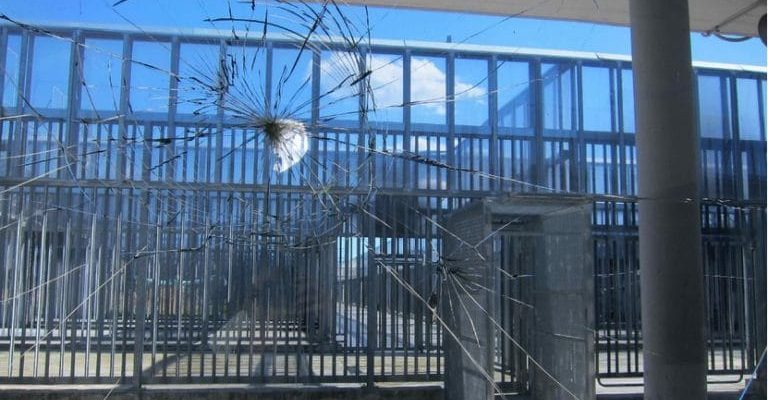Anthionia* says she was recruited in Benin (Nigeria) in 2013 by a fellow Nigerian national who, taking advantage of her poor and vulnerable status, offered her a better life and a job in Europe. Before departing she underwent a “juju” ritual, during which she swore she would not tell anyone what was happening to her and if she did, she would die. When she arrived in Italy, she asked for political asylum at the Cara di Mineo and reported to the Territorial Asylum Commission the story she had been instructed to tell by her recruiter’s brother in Nigeria. This same man forced her to run away and prostitute herself in various Italian cities, up until she found the courage and the opportunity to escape. Unaware of the outcome of her first asylum application, in November 2019, she went to the Police Headquarters to apply for protection again. Her new asylum application, however, was declared inadmissible and she was taken to a pre-removal centre in Rome; Ponte Galeria. There, she encountered an anti-trafficking body, the Be Free Cooperative, and began the process to be formally identified as a human trafficking victim, thus avoiding repatriation. Her roommate at the centre, Joy*, had suffered female genital mutilation, but incredibly, had not informed the Territorial Asylum Commission of this. Despite the surfacing of new supporting documentation (i.e. the genital mutilation certificate provided by a Roman hospital), her reiterated asylum request was considered suspicious by the Roman Police and she was detained in Ponte Galeria. Nevertheless, thanks to an emergency appeal mounted by the Legal Clinic of University of Rome 3, she managed to avoid repatriation as well.
The stories of Anthionia and Joy resemble those of six other Nigerian women, who did not have the same luck and remained detained in the centre of Ponte Galeria; risking repatriation. It was the end of November 2019 and at the base of their deprivation of liberty was a misinterpretation of the Salvini Decree by the Roman Police. The latter considered itself competent to decide whether a repeated application for international protection, in the executive phase of expulsion, is admissible or not.
Yet, the Court of Rome had repeatedly affirmed that only the Territorial Asylum Commission can determine whether a second asylum application based on new facts is admissible or not. In Joy’s case the Roman court had ruled that her detention was unlawful and ordered the Police in Rome “to receive the applicant’s new application for international protection and forward it to the Territorial Asylum Commission for its review”. On these grounds, and thanks to the involvement of the Guarantor of the rights of detainees of the Lazio Region and a group of NGOs, the prevention of repatriation of these six Nigerian girls was, eventually, also possible.
At that point it had all seemed to be resolved for the near future, at least in Rome. Then, on 13 January 2020 – in defiance of national and international standards, and the abovementioned decision of the Court of Rome – a circular issued by the Ministry of Interior allowed for the Police to repatriate vulnerable individuals prior to the deliberation of the competent Territorial Asylum Commission on the admissibility or not of the second asylum application. On the grounds of this circular, which would have forced Anthionia and Joy to return to their country of origin, on 21 January 2020, the Roman Justice of the Peace confirmed the detention of a Nigerian girl in a similar situation. She had submitted a new asylum application in light of new standards regarding trafficking for prostitution and gender-based persecution by means of genital mutilation, which she would have suffered in her country of origin. Consequently, the Police transferred her to Ponte Galeria, her confinement to which was validated by the aforementioned Justice. Fortunately, the girl’s lawyer filed an urgent appeal and, on the same day, the Court of Rome ordered her release. Not all victims of trafficking, however, will find good legal assistance and, thus, face concrete risks of being repatriated. Very often these people are afraid to report their exploiters and they submit asylum applications without telling the real and entire story. For these reasons, the law stipulates that the submission of a new asylum application based on new elements must be assessed by the Commission, and not by the Police. This is the framework that also emerges from the project “Alternatives to detention: towards a more effective and humane migration management” that the Italian Coalition for Civil Liberties and Rights (Coalizione Italiana per le Libertà e i Diritti Civili, CILD) and Progetto Diritti are carrying out with the support of the European Programme for Integration and Migration. In the context of this project, it is hoped is that the Ministry’s circular will be withdrawn in the short-term to prevent human trafficking victims and other vulnerable individuals being returned to countries where they would undergo further violations of their fundamental rights.
The work in the field of human rights defence not only concerns non-governmental organisations, but also institutions. “Our commitment will continue in order to ensure the rights of vulnerable individuals, who deserve assistance, qualified legal defence, integration programs and not to be repatriated” said the Guarantor of the Lazio Region, Stefano Anastasia. “To achieve these objectives we have asked the Prefecture of Rome to authorise us to establish a legal frontline office in the pre-removal centre of Ponte Galeria, as we already have in prisons throughout the Region”.
We hope that the Roman Prefecture will authorise this activity and that the Police of Rome, and of all Italy, will finally respect the law, as outlined in the abovementioned decisions of the Court of Rome.
*Names and identifying details have been changed to protect the privacy of individuals
Translation by Paola Petrucco. Proofreading by Fabi Fugazza.
Cover image: Freedom, Hurriyà, Libertà









